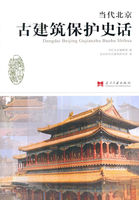Fear and pity may be aroused by spectacular means; but they may also result from the inner structure of the piece, which is the better way, and indicates a superior poet. For the plot ought to be so constructed that, even without the aid of the eye, he who hears the tale told will thrill with horror and melt to pity at what takes Place. This is the impression we should receive from hearing the story of the Oedipus.
But to produce this effect by the mere spectacle is a less artistic method, and dependent on extraneous aids. Those who employ spectacular means to create a sense not of the terrible but only of the monstrous, are strangers to the purpose of Tragedy; for we must not demand of Tragedy any and every kind of pleasure, but only that which is proper to it. And since the pleasure which the poet should afford is that which comes from pity and fear through imitation, it is evident that this quality must be impressed upon the incidents.
Let us then determine what are the circumstances which strike us as terrible or pitiful.
Actions capable of this effect must happen between persons who are either friends or enemies or indifferent to one another. If an enemy kills an enemy, there is nothing to excite pity either in the act or the intention- except so far as the suffering in itself is pitiful. So again with indifferent persons. But when the tragic incident occurs between those who are near or dear to one another- if, for example, a brother kills, or intends to kill, a brother, a son his father, a mother her son, a son his mother, or any other deed of the kind is done- these are the situations to be looked for by the poet. He may not indeed destroy the framework of the received legends- the fact, for instance, that Clytemnestra was slain by Orestes and Eriphyle by Alcmaeon- but he ought to show of his own, and skilfully handle the traditional. material. Let us explain more clearly what is meant by skilful handling.
The action may be done consciously and with knowledge of the persons, in the manner of the older poets. It is thus too that Euripides makes Medea slay her children. Or, again, the deed of horror may be done, but done in ignorance, and the tie of kinship or friendship be discovered afterwards. The Oedipus of Sophocles is an example. Here, indeed, the incident is outside the drama proper; but cases occur where it falls within the action of the play: one may cite the Alcmaeon of Astydamas, or Telegonus in the Wounded Odysseus.
Again, there is a third case- [to be about to act with knowledge of the persons and then not to act. The fourth case] is when some one is about to do an irreparable deed through ignorance, and makes the discovery before it is done. These are the only possible ways. For the deed must either be done or not done- and that wittingly or unwittingly. But of all these ways, to be about to act knowing the persons, and then not to act, is the worst. It is shocking without being tragic, for no disaster follows It is, therefore, never, or very rarely, found in poetry. One instance, however, is in the Antigone, where Haemon threatens to kill Creon. The next and better way is that the deed should be perpetrated. Still better, that it should be perpetrated in ignorance, and the discovery made afterwards. There is then nothing to shock us, while the discovery produces a startling effect. The last case is the best, as when in the Cresphontes Merope is about to slay her son, but, recognizing who he is, spares his life. So in the Iphigenia, the sister recognizes the brother just in time. Again in the Helle, the son recognizes the mother when on the point of giving her up. This, then, is why a few families only, as has been already observed, furnish the subjects of tragedy. It was not art, but happy chance, that led the poets in search of subjects to impress the tragic quality upon their plots.
They are compelled, therefore, to have recourse to those houses whose history contains moving incidents like these.
Enough has now been said concerning the structure of the incidents, and the right kind of plot.














